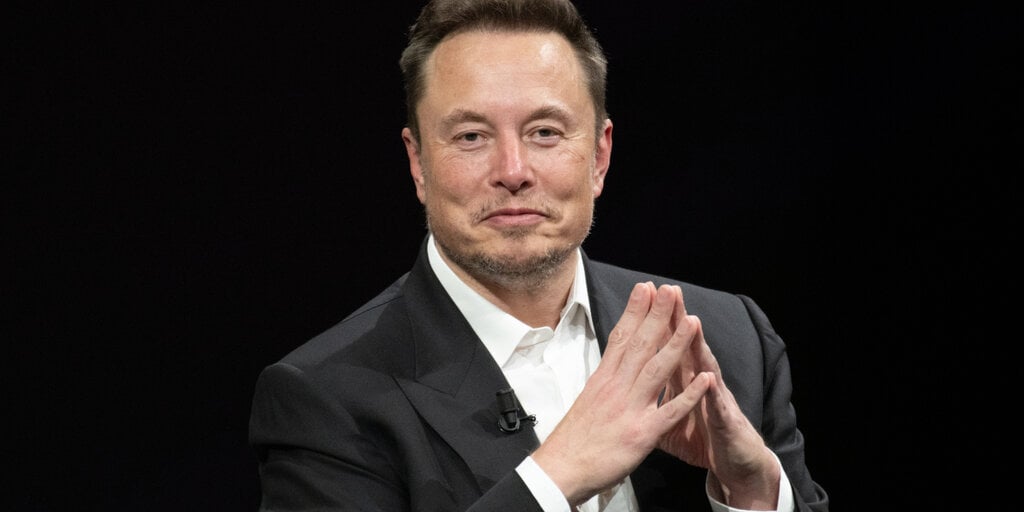Elon Musk has threatened to ban Apple devices at his companies after the tech giant announced that it would integrate OpenAI’s flagship AI model, ChatGPT, across its product line—potentially affecting billions of iPhones, Macs, and iPads.
“If Apple integrates OpenAI at the OS level, then Apple devices will be banned at my companies,” Musk posted to Twitter following Apple’s AI announcements on Monday. “That is an unacceptable security violation.”
The CEO of Tesla and SpaceX and co-founder of Neuralink said the policy would extend to guests as well.
“Visitors will have to check their Apple devices at the door, where they will be stored in a Faraday cage,” he vowed.
Musk is certainly not the first company executive to ban AI tools from its offices. In fact, Apple itself banned employees from using ChatGPT—the same tool the tech giant is now tapping to enhance its 13-year-old virtual assistant, Siri.
In another tweet, Musk questioned Apple’s decision to partner with OpenAI instead of building its own generative AI model.
“It’s patently absurd that Apple isn’t smart enough to make their own AI, yet is somehow capable of ensuring that OpenAI will protect your security and privacy,” Musk wrote.
In announcing its ChatGPT partnership, Apple stressed that Siri would ask users for permission before connecting to the AI model, and that its implementation would be encrypted and kept private and secure. Musk was skeptical.
“Apple has no clue what’s actually going on once they hand your data over to OpenAI,” he tweeted. “They’re selling you down the river.”
The explosive emergence of ChatGPT has sparked bans at several organizations. Last year, the U.S. House of Representatives prohibited staffers from using ChatGPT over privacy concerns. At the same time, Samsung also banned the use of ChatGPT on company systems.
Musk had not previously objected to increasing integration of AI into hardware and software by other big tech companies, including Microsoft, Meta, and Google—which has also introduced a smartphone with deep AI integration. His aversion to ChatGPT specifically, versus AI in general, likely stems from longstanding bad blood between him and OpenAI.
The billionaire has repeatedly spoken out against OpenAI, the company he co-founded in 2015 along with Sam Altman, Ilya Sutskever, Greg Brockman, Andrej Karpathy, and several others. In fact, Musk took credit last May for the creation of OpenAI, saying it wouldn’t exist without him.
“I was instrumental in recruiting the key scientists and engineers, most notably Ilya Sutskever,” Musk told CNBC. “Ilya joining was the linchpin for OpenAI being ultimately a success.”
In March, Musk filed a lawsuit against OpenAI and Sam Altman, accusing the company of straying from its humanitarian roots.
“This case is filed to compel OpenAI to adhere to the founding agreement and return to its mission to develop AGI for the benefit of humanity,” Musk said in the complaint, “not to personally benefit the individual defendants and the largest technology company in the world.”
In response to Musk’s lawsuit, OpenAI published internal emails that suggested Musk was also motivated by profit.
“We need to go with a much bigger number than $100M to avoid sounding hopeless relative to what Google or Facebook are spending,” Musk allegedly wrote. “I think we should say that we are starting with a $1B funding commitment. This is real. I will cover whatever anyone else doesn’t provide.”
OpenAI did not respond to Decrypt’s request for comment.

